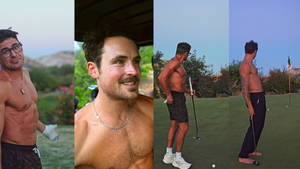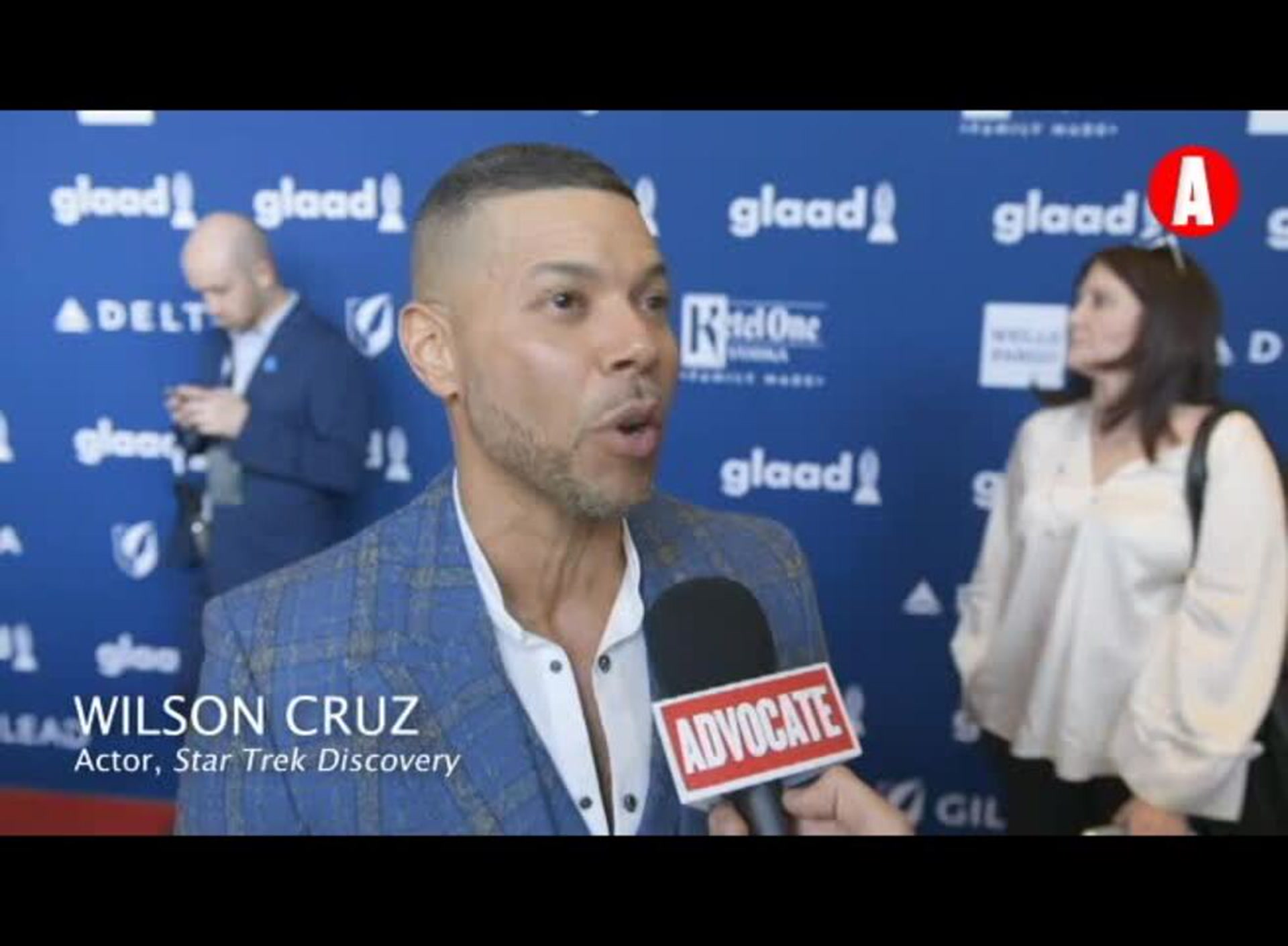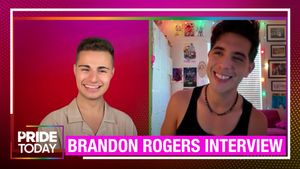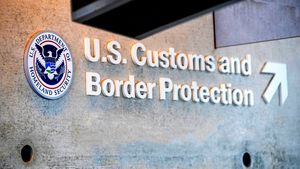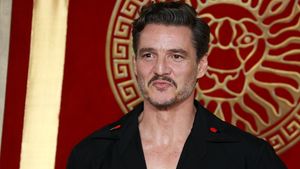How far in advance would Aaron McKinney and Russell Henderson have had to plan Matthew Shepard's murder before HuffPost and Vox would have called it a hate crime?
Unbelievably, both publications concluded in stories this year that what happened at Pulse nightclub was not a hate crime. Since Omar Mateen was planning on killing anyone, they contend, the fact he wound up massacring a bar filled with queer people is mere coincidence.
"Everyone Got the Pulse Massacre Story Completely Wrong," wrote HuffPost senior reporter Melissa Jeltsen. "New Evidence Shows the Pulse Nightclub Shooting Wasn't About Anti-LGBTQ Hate," wrote Vox senior politics reporter Jane Coaston. They have stood by those stories, as have their editors.
It doesn't matter that Omar Mateen, after having killed dozens of people, paused to post this message on Facebook: "The real muslims will never accept the filthy ways of the west." It doesn't matter that he sat inside the club and watched people dance or that a security guard told him it was a slow night because Gay Days had just ended. All that matters to these reporters -- there are others, they're not alone -- is that Mateen went to other clubs before settling on Pulse that night.
The trial in March of the shooter's widow, Noor Salman, let us in on a few details about the hours before the killings. And that's where these reporters get their misunderstanding of the definition of a hate crime.
It's true that Mateen originally ventured to a club at Disney Springs. Video shows he saw security outside -- which these journalists interpret to mean Mateen left because he feared the tight security. Maybe that's true. It's also possible Mateen had heard about Gay Days and left Disney when he realized the gays had left. I mean, it's possible, isn't it? The point is, no one can read Mateen's mind.
After leaving Disney, Mateen typed into his GPS the address for another straight club, EVE Orlando, evidence presented during the trial shows. He wound up at Pulse.
(RELATED: Why Does the FBI Refuse to Call the Pulse Massacre a Hate Crime?)
That timeline is the entire basis for the media's contention that homophobia was a nonfactor. No, really, I know it's hard to believe, but that's why the media wrote stories declaring Pulse isn't really a hate crime.
So, media, let me try to understand this "logic." Omar Mateen had two other locations he planned to shoot up, but he passed, and it wasn't until he got to the gay club that he actually decided to kill everyone? But that has nothing to do with homophobia?
The timeline might explain how he got to Pulse, but it fails to explain why Mateen decided to kill those particular people. What could it have been? About those people? That made him pull the trigger?
During the trial, security camera video of the shooting also became public information. Mateen is seen on video spending 13 minutes inside Pulse, sitting at the bar, watching men dance around him. There should be no doubt: He knew who he was killing.
Actually, he was told it was a gay bar. A security guard's statement read by the defense in court said that Mateen asked him, "Hey, why is it so slow tonight? Where are all the girls at?" What the security guard, Neal Whittleton, told Mateen in response ought to put to rest whether the shooter knew these were queer people. Whittleton told Mateen that Gay Days at Walt Disney World had just ended the previous weekend, so it was bound to be a slow night.
The defense attorneys for Salman implied that Mateen's question is proof he was totally clueless, that he had no idea those people inside were LGBT. They claim Mateen was totally focused on his support for ISIS -- an organization, we ought to remember, that would promptly throw me off a roof for being gay.
When ISIS throws a man off a roof, it's usually down to a mob of people who finish the job by stoning him to death. We only know this because all the while they record the murder with video and photos. The "death to gays" videos are known worldwide. It was a big deal, at least in LGBT media, when the executioner known as "white beard" was caught a few months ago by Iraqi security forces.
Investigators weren't able to find web history that showed Mateen looked up any gay porn (which would've suggested he was a closeted gay man), but they did find lots of ISIS propaganda video of beheadings and such. If Mateen was pro-ISIS, he was also anti-LGBT.
Amazingly, HuffPost and Vox don't see that as important in whether Pulse was a hate crime.
Vox's reporter told me over Twitter when I complained about her story, "I am certain Mateen hated LGBT people. I don't think that was the motivation behind the Pulse shooting."
HuffPost in its story acknowledges that Mateen was probably homophobic. "Mateen may very well have been homophobic. ... But whatever his personal feelings, the overwhelming evidence suggests his attack was not motivated by it."
We must be looking at different evidence. The evidence shows he skipped other opportunities to kill people. It shows he supported ISIS, which supports killing gay people. It shows he got to the gay club, spent time in it, confirmed it was a gay club, and then went on a killing spree. He stopped killing people only to write on Facebook about the "filthy ways" of the people he murdered.
(RELATED: These Men Say Their Memories of the Pulse Shooter Aren't Flawed)
It's impossible to separate homophobia from a person who commits a homophobic act, especially a murder. Aaron McKinney and Russell Henderson testified that on the night they murdered Matthew Shepard, they had actually set out to rob someone. That was the original plan. They happened upon this young man who seemed like a good target, someone they said seemed weak, who couldn't effectively fight back. It was merely a bonus that he was gay, because they felt justified in assaulting a gay man.
Matthew Shepard's death was a hate crime. It doesn't matter if the killers intended to rob someone. They murdered a gay man, and they chose him because they hated gay people.
Let's pretend for a moment that Mateen wandered into a gay club, never having sought it out, and then realized where he was. His own father said Mateen turned "very angry" at the sight of two men kissing in Miami. Imagine how Mateen must've felt in the room with men kissing and dancing. Pretty angry, I'd guess.
Whether he got there on purpose or not is moot. That moment of rage that precludes a hate crime doesn't often come from long-term planning. Hate crimes don't have to be the result of some master plot.
This should be obvious. I'm actually outraged that this isn't obvious.
Reading these misguided stories in the media, I'm reminded how badly the world wants to believe anti-LGBT animus is behind us. The world wants to believe it has evolved, in the same way it wants to dismiss racism and misogyny. The reality is anti-LGBT animus exists. Transgender people are killed so often it barely makes headlines outside of The Advocate. (Here's a list of 12 people murdered this year alone.)
The effect of revising history to scrub it of homophobia is to minimize the danger it causes if you cheer when a baker refuses to serve a gay couple or the message it sends if you retweet a hateful president's attacks on transgender people. The Trevor Project sees a rise in calls to its suicide hotline timed with Trump's outbursts. A stadium filled with soccer fans ought to understand the effect of chanting a gay slur on Pride Night in Los Angeles. We still live in a world where a candidate for Congress uses her phone to broadcast live on Facebook as she stalks a transgender woman into the bathroom, brandishing her stun gun and pepper spray. Don't tell me the world isn't dangerous just because you want to make yourself feel better.
What's worse is the insidious way in which this idea seeps into the world, giving the right wing fodder for its claim that gays love to play the victim, as if we're all making it up. We're hysterical. We see homophobia everywhere.
I'm not saying homophobia was the primary motivator for the Pulse shooting or that the killer planned to take down a gay club. I'm saying homophobia played a part. That's why so many have long contended this tragedy was both a terrorist attack and a hate crime.
Hate crimes are vicious acts of rage, often springing from a split second devoid of thought. It's that kind of rage that LGBT people expend so much mental energy trying to avoid in our everyday lives. Should I hold hands? Can I kiss my husband goodbye? It's not that I'm worried some psycho is plotting the exact right moment to attack a gay couple for our PDA. I hesitate because I'm worried a nut will be set off spontaneously.
Still, it would be a hate crime either way.
LUCAS GRINDLEY is the editor in chief of The Advocate. Follow him on Twitter @lucasgrindley or on Facebook.































